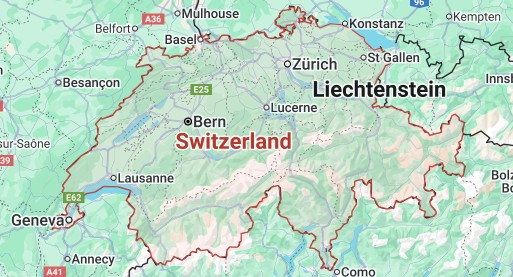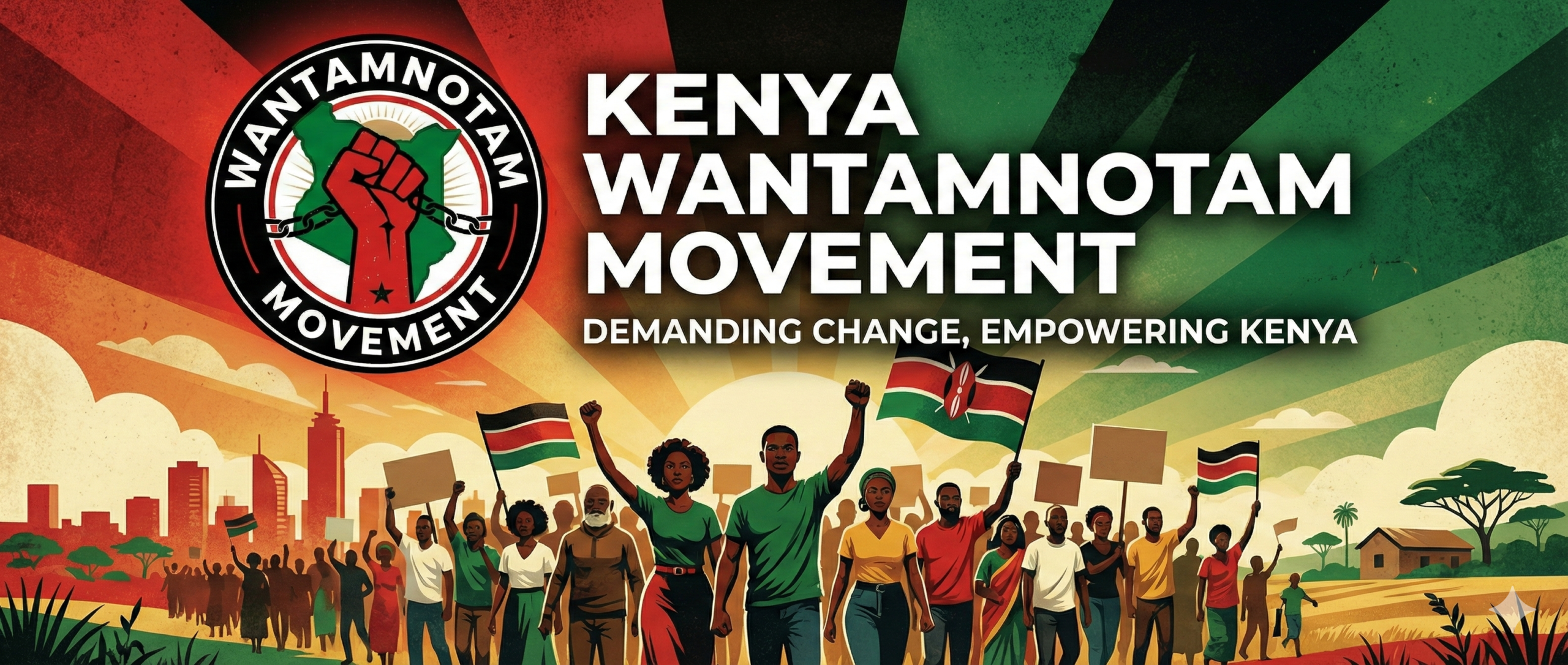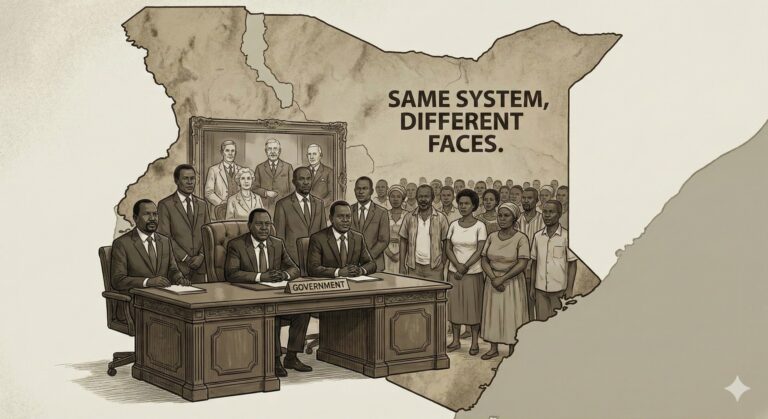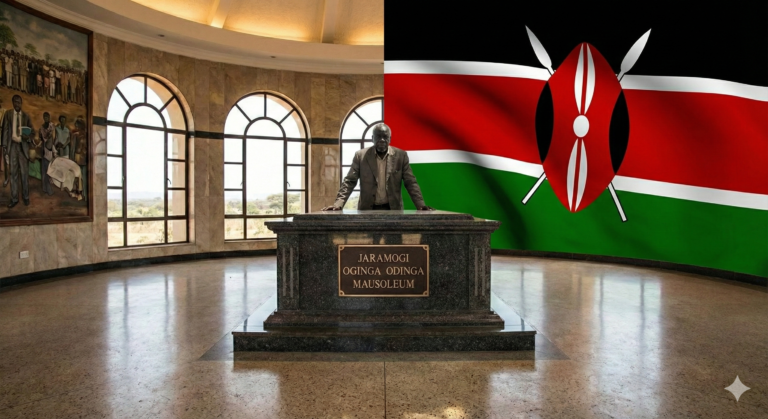
Why the Presidency in Kenya is a Matter of Life and Death: Rethinking Leadership for a Peaceful Future
In Kenya, the presidency holds more than just political significance—it has become a matter of survival for the people. The stakes in presidential elections are higher than anywhere else; it’s not just about votes—it’s about securing your future, your community’s well-being, and sometimes even your life. The competition for the presidency isn’t just a political battle, but one deeply embedded in the tribal and cultural fabric of Kenyan society.
Kenya’s Obsession with the Presidency: A Political System at the Crossroads
Kenya’s entire political system revolves around one singular, powerful position—the presidency. State machinery, national resources, and political influence are all aimed at this single goal. The seat of the presidency controls nearly everything in the country, making the pursuit of this office a cutthroat game for power. Unfortunately, this high-stakes competition often results in a deeply divided nation, where tribal tensions, electoral violence, and instability have become a sad norm.
However, a pressing question remains: Why are we stuck in this cycle? Why can’t we reimagine a leadership system that fits the unique dynamics of Kenya instead of sticking to borrowed Western ideals? It’s time to ask the hard questions: Can we create a system that isn’t mired in corruption and tribalism?
The Swiss Political System: A Model for Kenya’s Future?
One of the models that could potentially work for Kenya is the Swiss political system. Though not perfect, the Swiss system offers valuable lessons that Kenya could adapt to foster a more inclusive and peaceful democracy.
Switzerland operates on direct democracy and federalism with a strong emphasis on power-sharing. Its political system is characterized by a multi-party approach, where no single party holds overwhelming control. Unlike Kenya, where the executive power rests in the hands of a single president, Switzerland’s Federal Council—composed of seven members—shares executive responsibilities. This ensures that power is not concentrated in one individual and that no one person can dominate the political scene. The presidency rotates annually among the seven council members, ensuring equality and power distribution.
Advantages of the Swiss System for Kenya:
- Power-sharing: The Swiss political system promotes inclusivity by spreading political power across multiple groups. This ensures that no single group dominates, helping to reduce ethnic tensions—something that Kenya desperately needs.
- Consensus-building: With coalition governments and wide consultation, Switzerland fosters decision-making that takes into account diverse views, rather than imposing decisions from the top down. This is crucial in Kenya’s highly diverse society, where ethnic differences often lead to political violence.
- Citizen Empowerment: Swiss citizens have the ability to petition for referendums on any decision they disagree with. This level of direct democracy gives citizens real power, empowering them to hold their leaders accountable. In Kenya, where corruption runs rampant, such a system could transform political dynamics by shifting the balance of power back to the people.
Challenges of Adapting the Swiss System in Kenya
While the Swiss model offers many potential benefits, there are significant challenges to implementing it in Kenya.
- Political Maturity: The Swiss system requires a political culture built on long-term planning and compromise—something that’s currently lacking in Kenya’s more transactional political landscape. Moving from the “winner-takes-all” mentality to a model based on negotiation and collaboration would take time.
- Potential Gridlock: Switzerland’s coalition government can sometimes result in political deadlock due to the many voices at the table. Achieving consensus across a diverse array of political parties can be time-consuming and frustrating. For Kenya, where decisive action is often needed, this might slow down progress.
- Shift in Mindset: Kenyan citizens and politicians would need to embrace a new approach to leadership—one that values collaboration over competition and power-sharing over dominance. This cultural shift would require both political leaders and the public to understand and embrace the advantages of a shared power structure.
Adapting the Swiss Model to Kenyan Realities
For Kenya, adopting a Swiss-style system wouldn’t be an overnight change. It would require long-term education and awareness campaigns to show the benefits of power-sharing and collaboration. Politicians would need to focus on the common good, leaving behind the temptation of short-term tribal gains. Civil society would have to become more active, not only during elections but throughout the entire political process.
The educational system would also play a key role. To foster awareness of the Swiss system’s benefits, the public needs to understand that power-sharing isn’t about weakness—it’s about strength. The idea that leadership is not a zero-sum game could become the cornerstone of Kenya’s political future.
A Path to Stability and Unity
In the end, the presidency in Kenya shouldn’t be a matter of life and death. The Swiss model offers a chance to break free from the tribal violence and political chaos that has plagued the country for years. By adapting the Swiss system to Kenya’s unique circumstances, there’s hope for a more inclusive, peaceful, and democratic system that benefits all Kenyans—not just those in power.
The Swiss political system isn’t perfect, but it’s a promising start. For Kenya, it might just be the solution to reducing tribal tensions, eliminating electoral violence, and building a leadership structure that prioritizes unity and collaboration. However, to make this vision a reality, Kenya must break away from old models and forge a new path forward—one that works for all its people.
CLICK HERE:Listen To WANTAMNOTAM PODCAST AND TAKE ACTION




